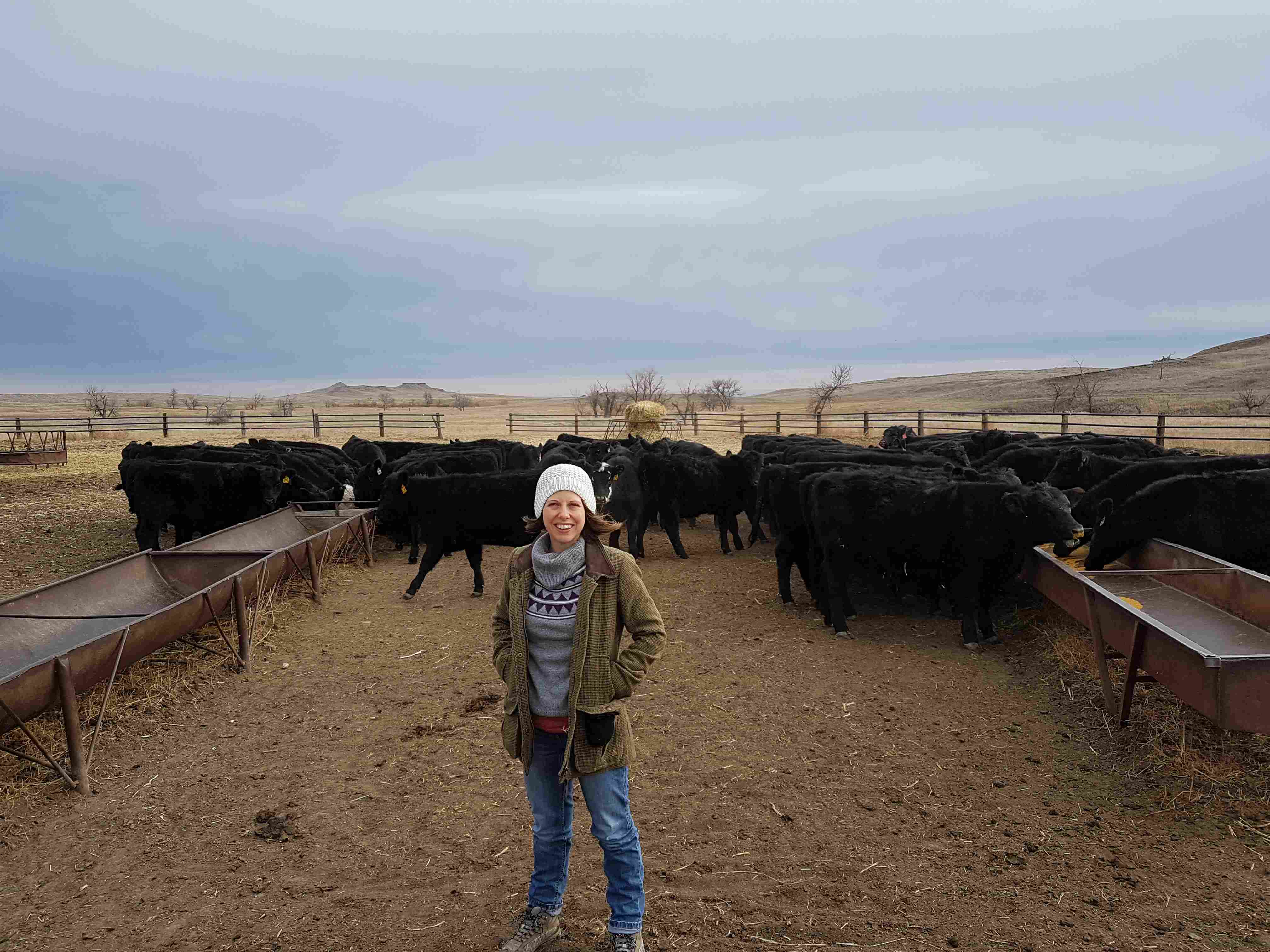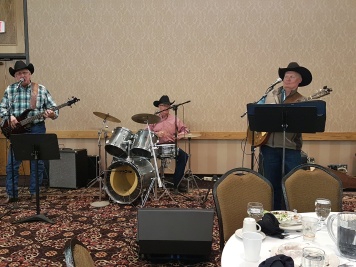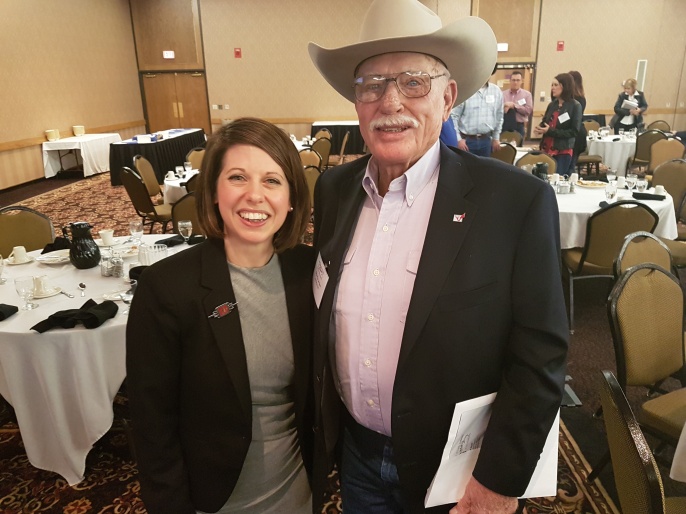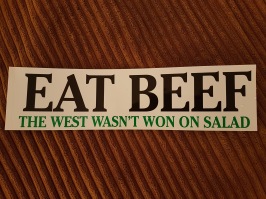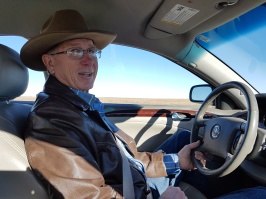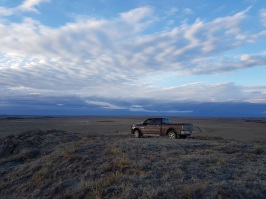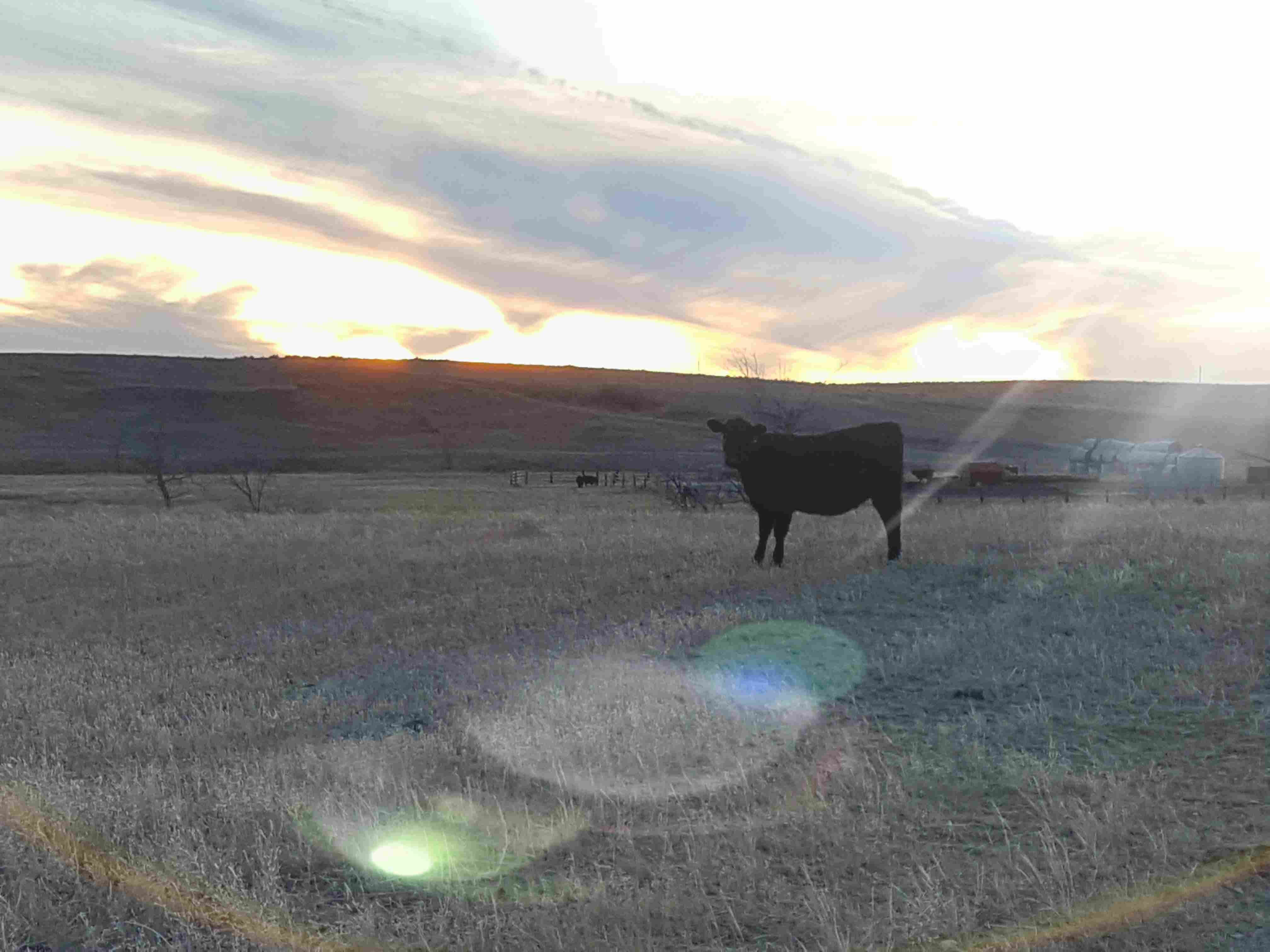BBC farming journalist, Anna Jones, visited beef cattle ranchers in the US – she shares their perspectives on the British horror at hormone-fed intensive beef…
Wow. It really kicked off didn’t it? BBC One’s ‘Meat: A Threat to Our Planet?‘ made the front page of the Farmers’ Guardian, seemed to be trending on Twitter for days and was a hot topic of conversation at last week’s Nuffield Farming Conference. I almost missed the lunch buffet because so many people stopped to ask my opinion on it and share theirs.
I sensed a great fear among farmers that they might get tarred with the same dirty brush as those filthy American ranchers. With their feedlots and rainforest destruction. It caused an almighty ruckus. Collective outrage. How very dare you BBC!
But the whole time I couldn’t help but think to myself: “Why are you all so annoyed? Imagine if you were an American rancher.”
Read Anna’s part 1 of this blog post – ‘Meat on the BBC, the good, the bad, and the ugly’.
I watched ‘Meat: A Threat to Our Planet?’ just days after interviewing a US meat trade analyst and a South Dakota cattle rancher about hormone beef and trade deals for Radio 4’s Farming Today.
Unlike British farmers who get very upset at the idea of people rejecting meat and were outraged at the BBC before they’d even seen Liz Bonnin dig around in a live cow’s stomach, American ranchers and beef trade people always appear ‘unruffable’ in the face of intense criticism.
Cheerily relaxed, they have unwavering self-belief. The question in their minds is not: “Why would the UK want our intensive feedlot-finished, hormone beef?” But: “Why wouldn’t they want it?”
“No problem – we’ll give you hormone-free beef”
The Americans have reached a ‘beef plateau’ at home. The point at which per capita beef consumption has levelled out at 26kg (for each of the 327 million people who live in the States).
They can’t expect loyal American consumers to physically shove any more beef into their mouths, so they’re looking out from their lofty plateau towards the horizon for new markets. For people in need of beef.
There, on the other side of the Atlantic, lies a tiny island whose people consume a piddly 18kg of beef a year. Perfect. Sure, the Brits have a few concerns about hormone implants, but the Americans don’t sweat it: “Hey, if you don’t like it – we’ll just sell you some hormone free beef! Grass-fed too if you want it?”
You see, whinging is not the American way. They’ll beat you down with positivity instead – bucket loads of positivity.
Their pride and patriotism gives them confidence
In 2017, I attended the South Dakota Cattlemen’s Convention and it was a real education in this mentality of unruffable pride and patriotism (with subtle undertones of “we don’t care what you think”).
There were free stickers emblazoned with ‘EAT BEEF: THE WEST WASN’T WON ON SALAD’. A politically minded friend of mine later pointed out that, no, The West was won on war and the mass displacement of a native people. Awks.
But there were some really touching sentiments too, like: “The landscape of any farm is the owner’s portrait of himself.”
After dinner, a country and western band sang songs about prairie life, lyrics that brought a tear to my eye:
“Every time I see an eagle wild and free, I pray this way of life will never change.
“And I thank the Lord above I’m on the land I love,
“South Dakota, you’ve been good to me.”
US ranchers are tough
And I admire them for that. Because it’s not easy being an American rancher.
Far from the image of “beef barons” and “industrialised global agriculture”, these are ordinary people living on the land in ways we would struggle to in the UK.
Isolated ranches in depopulated and deprived rural communities. Hours away from a hospital; even a grocery store. Local government don’t even maintain the roads, let alone collect the garbage. I stayed on a ranch where they had drilled their own borehole and engineered their own water filtration system, and built a road into town (yes, a road).
British farmers complain about not being represented fairly. Try being a Midwestern cattle rancher! You live on the Great Plains – under the darkest night sky I’ve ever experienced – raising cattle on native prairie grasses.
Many ranchers still round the herd up on horseback. They live modestly, go to church, hardly drink alcohol, grow their own vegetables and eat their own animals. It’s self-sufficiency beyond anything the majority of us – including farmers – know in the UK.
Yes, they castrate and brand their calves without aesthetic, give them hormone implants, send them away – often many miles – to be finished intensively in feedlots and fed enormous (and probably unsustainable) quantities of grain. That’s also true.
But it’s not a simple picture. It’s not black and white. It’s not good or bad.
I’ve eaten certified Angus steak (with hormones), grilled medium rare on a barbecue overlooking the South Dakota prairie at sunset. Pink, juicy and delicious. It was like a cartoon steak. You know, the sort of big juicy T Bone that dogs dream about in thought bubbles. And each steak is as delicious as the last. Scarily reliable uniformity.
As a beef farmer’s daughter, I worry. Because it will sell itself on the British supermarket shelf – hormones or no hormones.
And maybe that’s why the Americans are still smiling. They let their beef do the talking.
Can we do the same?
Read Anna’s part 1 of this blog post – ‘Meat on the BBC, the good, the bad, and the ugly’.
